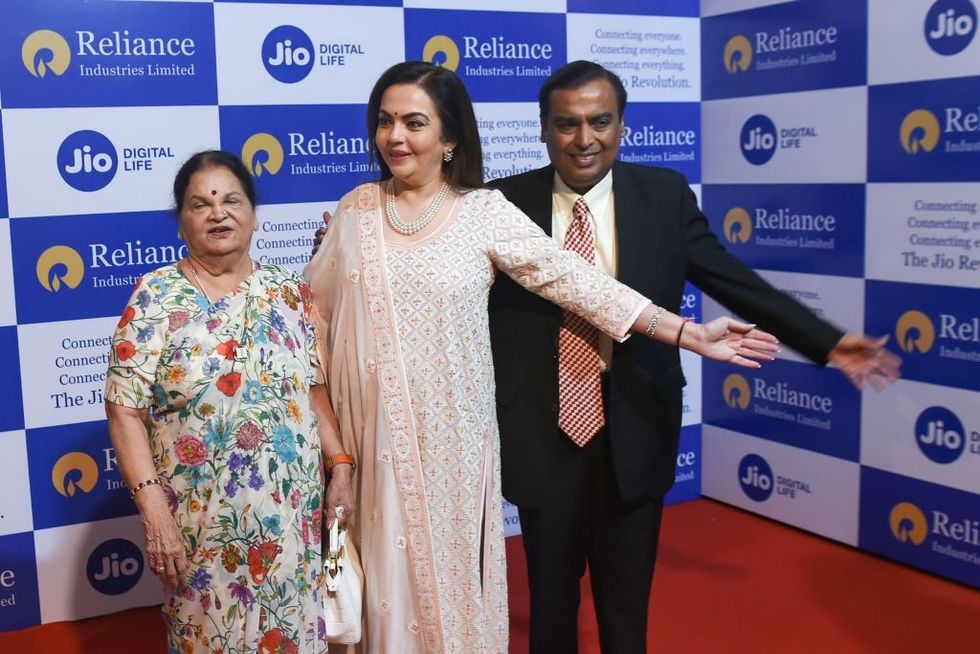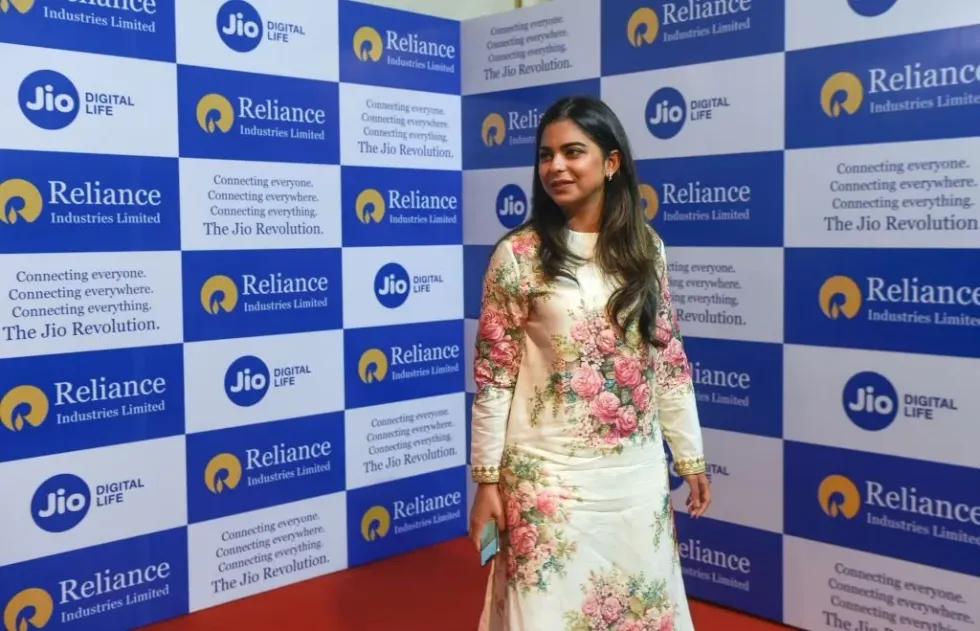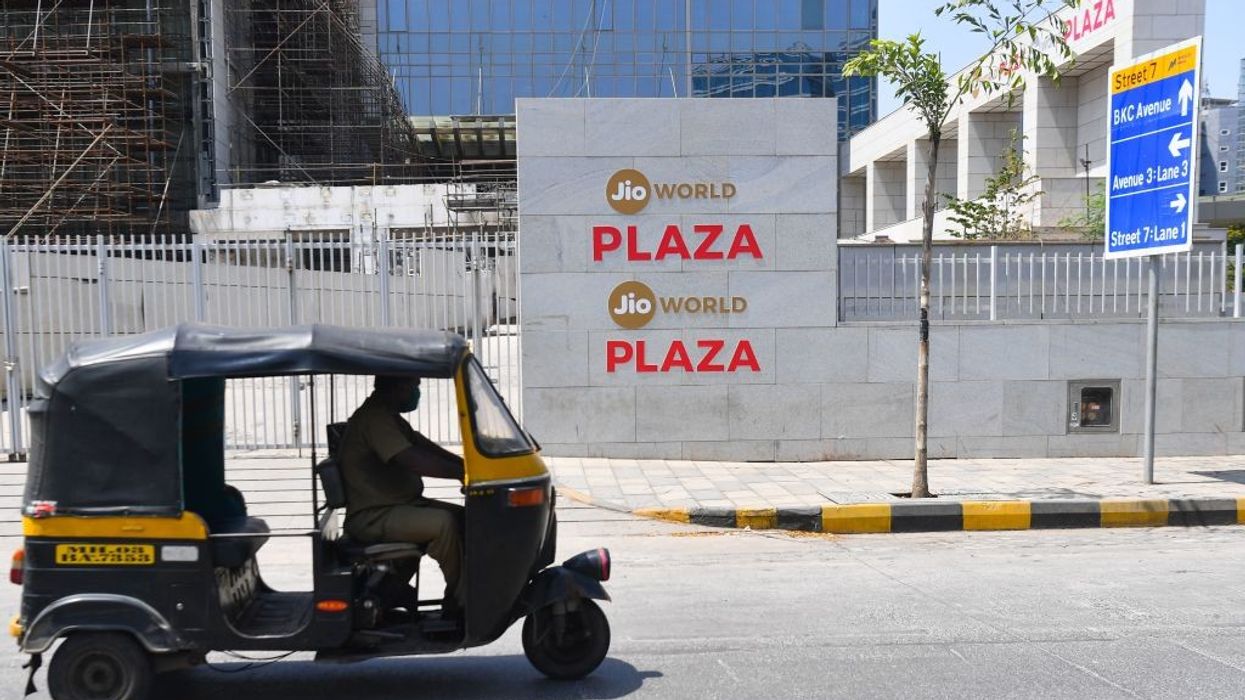INDIAN tycoon Mukesh Ambani is betting a shopping palace within a $1 billion Mumbai business showcase will tap into surging demand for Western luxury goods, installing his Reliance empire as a portal through which most of the biggest brands must pass.
Though still small for a country of its size, India's luxury market is set to nearly double in size to nearly $5bn within five years, Euromonitor estimates. Targeting that growth, Reliance is building a mall with dozens of outlets for powerhouse brands from Louis Vuitton to Gucci, reported Reuters.
The ritzy mall, Jio World Plaza, is the centrepiece of Reliance's bid to lure uber-rich Indians eyeing expensive bags or shoes. Luxury dominance would come on top of its number one position in India's nearly $900bn retail market, where it faces intense competition in e-commerce and supermarkets from the likes of Amazon and Walmart.
Three people with direct knowledge of Reliance's strategy said the push is aimed at leveraging foreign brand partnerships and being ahead of retail rivals in luxury offerings.
The total cost of developing the Jio World Centre - a giant commercial and cultural hub in Mumbai's Bandra Kurla business district that houses the luxury mall - is upwards of $1 billion, a person with knowledge of the matter said.

The hefty investment by Reliance, with a market value of $238bn, shows the drive of Ambani's family to expand in luxury - especially his 30-year-old daughter Isha, closely involved in directing the push.
"Global brands want to be here (India), Reliance is trying to drive that boom and act as a catalyst," said a second person with knowledge of Reliance's strategy.
The sources declined to be identified because they're not authorised to disclose Reliance's strategy publicly. Reliance did not respond to Reuters' requests for comment.
Mall to open next year
The mall, spread across four floors and the size of 10 soccer fields, will come complete with marble floors and golden guardrails, the documents show. After Covid-19 disruptions delayed raw material imports, the mall will likely to open early next year, sources said.
A floorplan shows some 30 brands as confirmed in recent weeks for the upper ground floor of the mall, including LVMH's Louis Vuitton, Tiffany and Dior. Also present will be LVMH rival Kering's Gucci, Balenciaga and Bottega Veneta, along with Versace, Richemont's Cartier and Hermes.
The document doesn't disclose financial details, nor whether the brand line-up might be subject to change. None of the brands responded to requests for comment.
The Jio World Plaza outlets represent significant India expansion for many brands. Company websites show, for example, Louis Vuitton has just three stores in India, despite opening its first outlet two decades ago, while Versace has just one.
Louis Vuitton's outlet in the mall will be its biggest in India at 7,376 square feet, the document shows.
ANAROCK Property Consultants' Pankaj Renjhen said India's luxury market is so small that many foreign brands prefer partnering with Reliance to keep costs in check and capitalise on its grip - and understanding - of India's retail market.
Euromonitor estimates the size of India's personal luxury market was $2.6bn last year, but set to grow 12% a year to reach $4.7 billion by 2026. By comparison, the market in China, where Louis Vuitton has around 60 outlets and Versace 40, will be up to $107 billion by 2026 from $58 billion last year.
Foreign brands for years have been hamstrung by issues including a limited number of stores in India, which "creates a chicken and egg problem," said Luca Solca, senior luxury goods analyst at Bernstein.

More than a vanity project
Rather than high-end bags, luxury for many aspirational Indians still means things like family holidays abroad - for now.
But according to Hurun India Wealth Report, the number of dollar-millionaire households in the country rose 11 per cent in 2021 from the previous year. Their favourite brands? Gucci, Louis Vuitton and Burberry.
The Mumbai mall is the Ambanis' first attempt to bring non-partner, high-wattage luxury brands together with existing partners for local sales like Tiffany and Bottega Veneta. Around half the luxury floor's brands will be Reliance partners, documents show.
Luxury executives see the mall as a show of strength in a long-game bet for Reliance that is much more than a vanity project for Isha and the Ambani family, even though it won't be a money-spinner anytime soon.
Isha has been closely involved in conceptualising the new mall, including how Reliance pitched the highly sensitive placement of rival brands next to each other, two sources said.
Last year, Fortune India magazine referred to her as "Heiress on Duty" at Reliance, ranking her as the 21st most powerful woman in India.
Four Indian brands - in which Reliance invested in recent months with plans to take them global - will be the only domestic names on the luxury floor of the mall, which will also have cafes and a six-screen multiplex cinema.
"The mall will act as a great image booster for Reliance," said Abhay Gupta, CEO of Indian consultancy Luxury Connect, which advises several global brands.
"It appears they want to convey: 'You can't think of India without thinking of Reliance'."
(Reuters)





